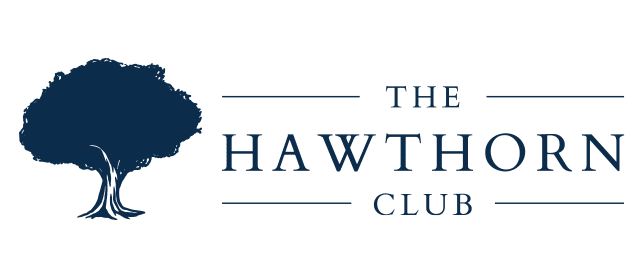In conversation with
Jennifer Purdie
Executive General Manager Gas Distribution, Jemena

Jennifer Purdie

Alice Gibson
The global Covid-19 pandemic has sparked heartening instances of ethical leadership from governments, companies and individuals. It has also sparked concerning instances of ethical failure. The Hawthorn Club’s APAC Advisor, Alice Gibson, is studying the ethical leadership phenomenon. In this conversation series she talks to some of the Hawthorn women about their experience of ethical leadership, and what this means for them during the Covid-19 pandemic.
Alice:
What do you think are the most important differences you’ve experienced during the COVID-19 crisis, compared to business as usual?
Jenny:
The difference that really stands out, is the uncertainty and the unknown dimensions of this particular incident. My mother in New Zealand said, “I can’t remember a time when the future seemed so uncertain since I was at primary school, and we had the Second World War on, and we were doing bomb drills under the desk.” That was right at the start, when we were really just unsure what we were getting ourselves into.
Interestingly, people have been through elements of it before, just not on this global scale. Some of our Chinese partners have had insights, having lived through SARS. They took it very seriously at the start, and they had some early successes knowing how to manage this. The other industry that has had it, of course, is in the mining industry, and operations that have had experience in places like Guinea and West Africa through the Ebola crisis. However, this is not limited to one industry, or one region, or one country; it is the whole global economy that’s impacted.
Alice:
How has your organisation managed the crisis?
Jenny:
I think our organisation has handled it well. We recently did a pulse survey to assess people’s views as to how engaged they’ve felt, how well they’ve felt that the leadership has put their health and safety first. The part of the business that I lead directly, being the gas distribution business and the control room staff, provided very positive feedback, in terms of how they’ve felt they were able to do their work, how they’ve been communicated with, and how they’ve been looked after.
The field force who have been on the frontline was somewhat less positive in terms of their feedback on engagement. Some of that was probably because of downsizing because of some expected work not being there. Some of them weren’t able to easily access the survey because they don’t necessarily have access to computers in the field. And some of the remote devices that we tried to connect them with, didn’t work as well. Which is symbolic of the fact that it hasn’t worked as well for them. But fair to say that I think overall, when I speak with the individuals and their leaders, overall the feeling is that we’ve still done a good job of looking after them. We also recognise that they have done a great job for our customers, which is another measure of their engagement with our organisation and its purpose.
Alice:
What do you think has driven that positive feedback?
Jenny:
I think one of the real drivers of that, and the comments people have made, has been around the level of trust that management has shown. People have felt an increased level of empowerment, and increased level of trust, and democratisation of the communication. When we communicate with people, it’s not like someone’s at the front of the room, and everyone else is looking at them. Everybody’s on the same online platform.
I think what has also come through is, as we see people in their homes you are reacting to them on a personal level. You see their kids there, their home, their workplace, their pets. We’ve had a strong focus on mental wellbeing, which means we’ve asked people, “How are you going? Tell me what’s going on.” People have felt they’ve been treated as people, rather than as a role.
Alice:
Are you saying that because everyone is literally on the same screen, that removes some of those hierarchical barriers?
Jenny:
It removes a few things. It removes that hierarchical barrier where one person is standing up presenting in a theatre style setting, and everyone else is listening. Often in those situations it’s very hard to get people to ask questions and engage. What we have found in doing strategy sessions and various interactive activities –whether it be on Teams or Skype – people are more open to asking questions because they can use the chat feature. They don’t have to put up their hand and ask in front of everybody. People on the call who have already presented can respond to questions on the side. I’ve seen people who’ve never said anything in a meeting asking questions and making jokes. People’s personalities have come through a lot more. The other thing that it’s done away with, has been the disadvantage of people attending from remote locations. Because the room is where the meeting is usually taking place, if you’re not in the room, and you’re on a screen or a phone, the meeting happens and you are a kind of an appendage. Whereas here, no one’s an appendage. That has made a huge difference.
How we keep these benefits will be a challenge; albeit there are things we know that are missing.
Alice:
What are some of the things that are missing?
Jenny:
One person summed it up when they said, “I don’t think there’s ever been a great idea created from a Zoom meeting.” That may or may not be true, but there is certainly the sense that collaboration and the sparking of ideas is more likely to happen when people are in the same room. People are missing the more informal interactions, just the sparking off each other, saying hello to people, seeing them in the room.
When we communicate through Zoom, we’re not using as many senses as we normally would. You are listening and you are seeing somebody, but in a two-dimensional environment, so you’re not picking up on all the body language. There’s a sense in which the richness of the communication may be lacking.
Alice:
In terms of the theme of this conversation, is there a salient example of ethical leadership you’ve experienced during the pandemic?
Jenny:
The ethical piece, I think is doing the right thing; it’s living by our values. Our values are around people. Health and safety is obviously right up there, but we also value our customers. Our purpose is to supply safe, reliable energy to our customers. It’s recognising that people in this pandemic situation are working from home; they want their homes to be warm, they want to have a hot shower at night, they want to be able to cook. It’s about working together and supporting each other.
People in some roles have been able to work from home, but others, for example in the control room, and those that monitor the gas network, they largely can’t work from home. So how do we help them to feel safe coming into the office? We’ve done things like providing access to parking spots, giving them a floor of their own, additional cleaning, all of those sorts of things. And similarly, with the field force, when they’re traveling, it’s about limiting the number of people in a vehicle. If they do have to go into a home of a customer where someone could be at risk, what protocols do we need to put in place; those sorts of things.
Then how do we make our frontline staff feel valued? We’ve done things like videos of a day in the life of a frontline employee. The equivalent of recognising frontline staff in the health sector feel valued and important, we’ve tried to do some of that with our employees too. The MD’s written everyone a letter saying we really appreciate the work you’re doing. Just really encouraging people and saying to the workers, “We know we need you, you’re really important to us. The work you’re doing is what’s keeping our business going. We can stay home, you can’t. Thank you.”
Alice:
Tell me about a time prior to COVID-19 where you’ve either experienced or demonstrated ethical leadership?
Jenny:
There are examples where I’ve needed to be really transparent with the workforce about the situation we were in, how we thought we needed to get out of it, and what we thought the strategy was. But also to ask for their input into the strategy and into the actions. So I think transparency, engagement, and relying on the workforce to have the solutions, and needing them to put in that discretionary effort to help solve the problems is vital. You’re asking for their trust, “Hey, we think we know where we’re going, we need you to trust us. We need you to come with us, but we also need you to think critically and tell us what we’re missing, and what are the pieces that you can contribute we don’t know about.”
Alice:
Can you give me a specific example?
Jenny:
In a past role, we had an ageing asset and we were having a lot of process problems at the time. I was new in the role. The guys were going, “We’re telling you there’s a problem, and you’re not listening.” Coming into that, I said, “Okay, I get it. We’re listening, and we need your help. And I know we haven’t always listened before, but we need to listen and we need to fix this.” Once people knew they were being listened to, and they understood the strategy, and they could see that we were working hard to get the funds to fix it, they all came in behind and did some extraordinary things to get us through a very difficult couple of years.
I remember at one stage, we needed them to shut down a piece of equipment unexpectedly. We were planning to go through to November, but we suddenly needed to shut it down sooner, and we ended up doing it on Grand Final day. All these contractors came in and did this very unpleasant process – clean, shutdown, clean the equipment, and get it going again for us, and it was on Grand Final day! That’s the level of commitment we had from them because they could see that without their discretionary effort we weren’t going to get through, and they wanted this business to succeed into the future.
Alice:
Given our conversation, how would you define ethical leadership?
Jenny:
Firstly, it’s about being authentic. It’s about a level of transparency with people around this is our purpose, this is our vision, these are our values. This is where we are now, this is where I think we need to go, and I’m being open with you. Your actions, and what you’re saying are lining up, so people can see you’re leading in a way that is congruent for them, so you make sense. That’s a big piece of ethical leadership. Then coming from that, it’s doing things in line with the values you espouse.
Alice:
Are there times when there might have been a clash of those values?
Jenny:
I think there’s been lots of times, because let’s be honest, leaders don’t always live their values. It’s very hard to do the right thing all the time and so I think it’s really about when you find something that’s not right, what do you do about it? And how do you make sure you’re authentic in it? It’s often not easy because there is often pressures around cost, the timeframe, different priorities, all those things. I think it is about being genuine and really thinking about how do I make this right, in this context? One example I can think about relates to paying suppliers on time. We say we put people’s safety first, and yet think about what it means to a small business if you don’t pay their bills on time. If you decide you might go from a 30-day to a 90-day payment terms for a small supplier. What does that mean for their cashflow and doesn’t that potentially impact their mental health or wellbeing? I don’t think anybody deliberately sets out to make things hard for small businesses and their suppliers, but there are negative impacts of company policies.
In this one instance, where I was concerned that we were not doing the right thing for our suppliers, I was able to say, “Look, this is what we need to do to make this right. And if we’re not able to do it this way, this is how it’s going to play out for us, because I’m not going to say one thing and do another. This is what’s going to happen if we don’t do something about this, so let’s see if we can create a better story.” And we were able to change our approach to get a better outcome.
Alice:
Given some of the benefits and challenges you’ve outlined to manage this pandemic, do you think we will return to ‘normal’?
Jenny:
One of the things that I’m really focusing on, is what does this next phase look like as we’re able to start to move back into the office. I think over the next period of time, we’re almost going to flip remote working on its head. So rather than working from home being something that is done on occasions for specific reasons, and by individuals who have a personal and/or productivity need, I think it’s going to be coming into the office that is something done by individuals based on their individual health and productivity needs; or for collaboration, or for specific activities. I think in that context we are going to be focusing on the same themes around wellbeing – physical and mental – and around empowering people. That is the piece I hope we can keep; it is that thing around a common purpose as well. We will need to trust people a lot more, and we’ll need to be much less directive. The importance of people understanding the purpose, the values, the vision, the strategy, is much more apparent, because you can’t be keeping an eye on what they’re doing and helping them make each decision. You’ve actually got to say, “You know where we’re going, you know what your role is. We need to trust you to get on with it.”
For a whole lot of reasons if we don’t continue to trust people, to give them agency, to show them we’re putting their wellbeing first, for one thing there’s always the possibility of a second wave. We may need to go back to where we were, in which case if we haven’t continued as we started out, we won’t get that good will again.
And I think it might be interesting to see how much change we do get in regard to people being able to manage their home duties and their work roles much more seamlessly.
Alice:
Do you think the ongoing flexible workplace arrangements have the potential to facilitate more workplace diversity?
Jenny:
I do. We’re talking about, for example, the fact that needing to be close to your family is no longer going to be a reason why you can’t do many jobs that would normally be in a different location from where you live. So that might be in the mining community where people who couldn’t do remote work or couldn’t travel to site a lot, and therefore were not able to be candidates for certain roles. That’s going to change.
For those of us who’ve had the nightmare of rushing to get to childcare before six o’clock from the city and getting stuck in traffic, and the stress of, “If I don’t leave now, I’m going to be stuck”. If you can decentralise a lot more, those pressures can really come off people, and the fact that they can be a lot more relaxed in what they do in their day job because they know they can plan their time. We don’t always realise what impacts this has on people, and what decisions people make about their careers based on the fact that they can’t make those sorts of things work. It also makes it easier for people to share duties in their family.
I think it’ll be interesting to see to what extent that actually helps with decentralisation and whether people are able to live more in regional towns, and whether there’s less of a need to travel to the city. I think that whole scenario has always been discussed, but never really happened. I think that could be quite exciting.
(Please note this is an amended transcript of the conversation for the purposes of readability.)


